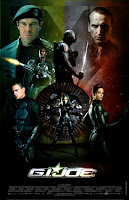Summer 2009 came and went. It was a summer of record highs and record lows. No, I’m not talking about the temperature; I’m talking about what happened inside the movie theater. Every summer, Hollywood tries to blow away audiences with high budget blockbusters and high concept comedies. This summer, as with any summer, a select few struck a chord with moviegoers. Now is time to examine the 2009 summer in movies.
Summer started strong. To no one’s surprise, Pixar scored another hit with “Up.” Even without 3D glasses, “Up” was as stunning as it was moving.
Perhaps the biggest surprise of the summer came earliest: “The Hangover.” What at first seemed like a typical buddies-go-to-Vegas-comedy turned into the funniest movie of the summer. What made the film work so well was it’s mixture of psychological thriller with slapstick comedy and Carrot Top cameos.
Perhaps the two most anticipated comedies of the summer, “Bruno” and “Funny People,” did not quite win over audiences. Of all the movies this summer, these two no doubt alienated audiences the most. I, however, was on the side of admiration. While “Bruno” didn’t reach “Borat” levels of hilarity, it’s impossible not to be impressed by Sacha Baron Cohen’s shameless audacity and ability to get a laugh even in the most frightening situations.
“Funny People” is the third film directed by Judd Apatow (“The 40-Year-Old Virgin,” “Knocked Up”), and certainly his most different. It’s his first film dealing with death, and his first one with an organized plot structure reaching an unknown conclusion rather than a plot that was a string of unpredictable events leading to a known conclusion. I don’t know which approach is better but in the end, both work.
Perhaps summer’s biggest disappointment was “Public Enemies.” What could’ve been a classic Depression-era crime thriller on the level of “Bonnie and Clyde” turned out to be a giant dud, and a waste of the brilliant talents of Christian Bale and Johnny Depp. Perhaps the main reason is that Michael Mann (“Collateral”) only seems to want to direct action, and not characters. On that note, he can’t direct action sequences very well either.
As for the big blockbusters, it was a mixed bag. “Star Trek” scored major points. I did not see “Transformers 2” or “G.I. Joe,” because the movies-based-on-toys trend is one that must soon come to a halt. The tonic to this Hollywood’s blockbuster problem was the stunning “District 9.” Maybe it was such a cure because it was more Cape Town than Tinseltown as it was shot by first time South African filmmaker Neill Blomkamp. The film managed to mix bizarre sci-fi fantasy with an allegory on apartheid and immigration. It was the perfect mix of action and brains I was searching for all summer long.
As usual, the best summer fare came from the art house. Kathryn Bigelow’s “The Hurt Locker” is the Iraq War film this generation has been waiting for. Shot eerily like a documentary, “The Hurt Locker” is perhaps the most realistic look at the war put on screen so far. It’s about a bomb diffuser so whenever a bomb goes off, naturally it goes off in slow motion; you can watch metal melting off a car as a bomb goes off. Michael Bay could learn a thing or two from a film like this.

This summer’s “Little Miss Sunshine” Award for indie surprise goes to “(500) Days of Summer.” While commercials have portrayed the film as a romantic comedy, it is far from that. It is the most inventive anti-romantic comedy you’ll see in a long time.
This summer’s award for best film came late. It is one that I should’ve seen coming though: “Inglourious Basterds.” Quentin Tarantino (“Pulp Fiction,” “Kill Bill”) is at the top of his game, employing Spaghetti Western style to Nazi occupied France.
What is it that an auteur like Tarantino proves about this summer in movies? Well, he proves that in the end, originality always wins.


.jpg)


